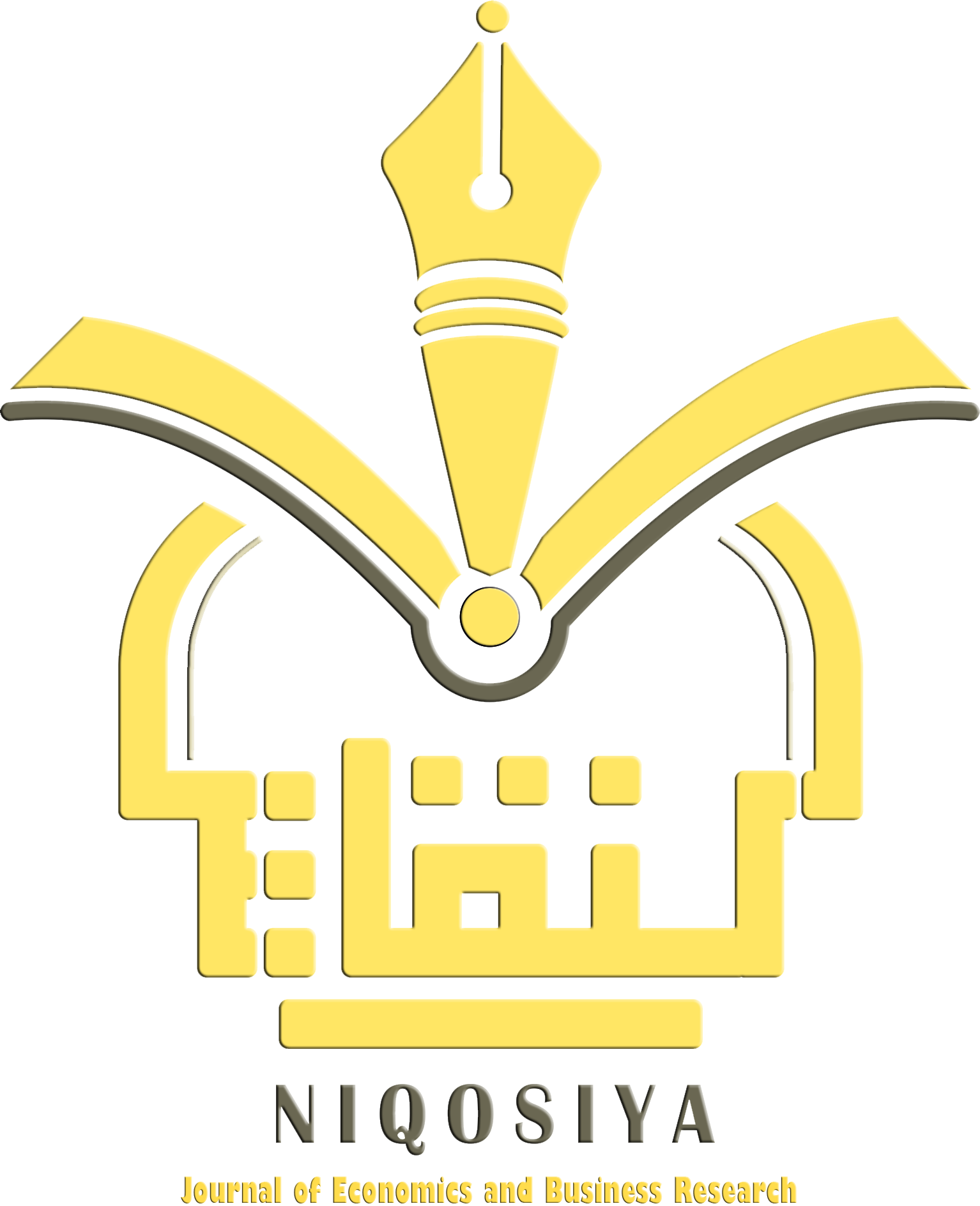Sistem Pemberian Upah Untuk Meningkatkan Kesejahteraan Anak Buah Kapal Perspektif Ekonomi Syariah
Abstract
Wages or ijarah are an important component in the world of work because wages are directly related to workers' welfare. According to Islamic economic theory, wages must contain the principle of justice in them. This research aims to determine and analyze the wage system to improve the welfare of Putra Samudra's crew members and to determine and analyze the implementation of the ship crew's wage system from a Sharia economic perspective. This research is field research using qualitative methods. The research results show that 1) The wage system implemented on the Putra Samudra Ship uses a time-term wage system consisting of daily wages and weekly wages. With these two systems in place, the amount of wages that must be paid by the Putra Samudra ship is not yet high when compared to the risks faced by the crew. However, to improve the welfare of fishermen, ship owners use a bonus wage system that can be used to meet the needs of fishermen and their families. 2) Based on the Sharia economic perspective regarding the implementation of the wage system on the Putra Samudra ship, in practice there is injustice in the giving of wages to the crew by the ship owner, namely the equality of nominal bonus wages between diligent fishermen and lazy fishermen.
Downloads
References
Adisu, E. (2008). Hak Karyawan Atas Gaji & Pedoman Menghitung: Gaji Pokok, Uang Lembur, Gaji Sundulan, Insentif-Bonus-THR, Pajak Atas Gaji, Iurann Pensiun-Pesangon, Iuran Jamsostek/Dana Sehat. Jakarta: ForumSahabat.
Anurogo, D., Ula, A. N. M., Hamidah, S., Abas, M., & Adnan, M. (2023). Pengantar Fiqh Muamalah. Sumatera Barat: PT. Mafy Media Literasi Indonesia.
Arrista Trimaya. (2014). Pemberlakuan Upah Minimum dalam Sistem Pengupahan Nasional Untuk Meningkatkan Kesejahteraan Tenaga Kerja. Aspirasi: Jurnal Masalah-Masalah Sosial, 5(1), 11–20. http://jurnal.dpr.go.id/index.php/aspirasi/article/view/448
Bramantoro, T., & Widiastuti, T. (2021). Manajemen Syari’ah dalam Pengelolaan Penyedia Layanan Kesehatan. Airlangga University Press.
Fahima, L. (2018). Fikih Ekonomi. Yogyakarta: Penerbit Samudra Biru.
Flambonita, S. (2020). Hukum Ketenagakerjaan. Malang: Media Nusa Creative.
Ghofur, A. R. (2020). Konsep Upah dalam Ekonomi Islam. Jakarta: Arjasa Pratama.
Hanif. (2024). Pemberdayaan Ekonomi Masyarakat Islam Berbasis Sumber Daya Lokal. Indramayu: CV. Adanu Abimata.
Khusairi, H., & Sarmigi, E. (2022). Peluang Wisata Budaya dan Religi dalam Meningkatkan Kesejahteraan Masyarakat (Pengaruh Budaya Kenduri Tuai Padi dan Religiusitas terhadap Kesejahteraan Masyarakat Kerinci). Pasuruan: CV. Penerbit Qiara Media.
Lina, A. W., & Mimit, P. (2018). Ekonomi Produksi Perikanan dan Kelautan Modern. Malang: UB. Press.
Mujahiddin. (2023). Mencari Kesejahteraan di Atas Sawah: Model Pemberdayaan Masyarakat Berbasis Praktik Governmentality di Wilayah Pedesaan. Medan: Umsu Press.
Murti, R. L. (2022). Sistem Pengupahan Karyawan PT Radio BBC FM Bagan Batu Ditinjau dari Prespektif Ekonomi Syariah.
Prasetiyo, L., Jannah, U. R., & Fitrianna, N. (2023). Corporate Governance Model of Islamic Philanthropy at Islamic Hospitals in Ponorogo. IQTISHADIA, 15(2), Article 2. https://doi.org/10.21043/iqtishadia.v15i2.17309
Putra, Z., Wiridin, D., & Wajdi, F. (2022). Implementasi Upah Minimum Terhadap Kesejahteraan Pekerja. Malang: Ahlimedia Press.
Rofiah, K., & Munir, M. (2019). Jihad Harta dan Kesejahteraan Ekonomi Pada Keluarga Jamaah Tabligh: Perspektif Teori Tindakan Sosial Max Weber. Justicia Islamica, 16(1), Article 1. https://doi.org/10.21154/justicia.v16i1.1640
Sugiono, A., Masykuroh, E., Sungkawati, E., Setyadjit, S., Dahliani, L., Yustina, I., Yogopriyatno, J., & Hermawati, I. (2023). Developing model of logistics capability, supply chain policy on logistics integration and competitive advantage of SMEs. Uncertain Supply Chain Management, 11(3), 1009–1018.
Suherni. (2023). Sistem Pengupahan dalam Pemenuhan Hidup Karyawan Kontrak Sekretariat Daerah Kabupaten Luwu.
Waluya, B. (2006). Sosiologi Menyelami Fenomena Sosial di Masyarakat. Bandung: PT. Setia Purna Inves.
Copyright (c) 2024 Elma Suci Oktaviyani, Ratna Yunita

This work is licensed under a Creative Commons Attribution-NonCommercial 4.0 International License.














